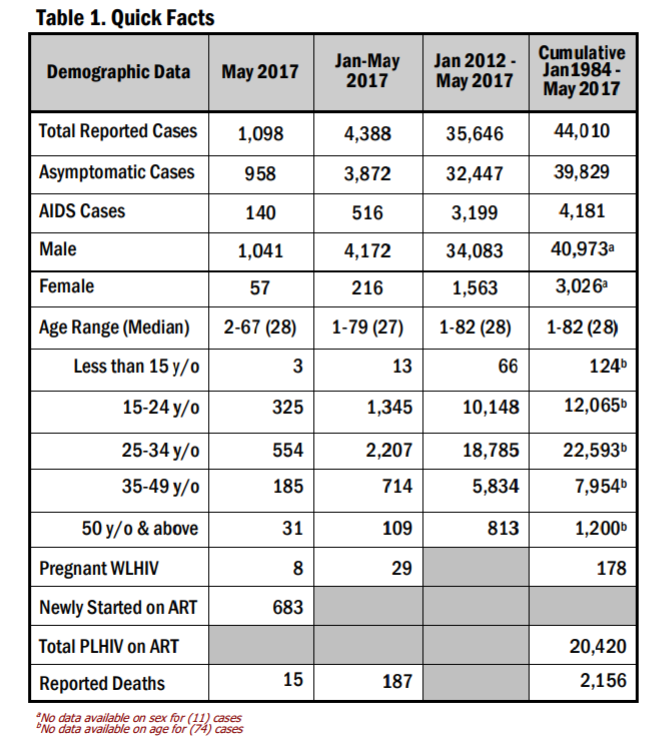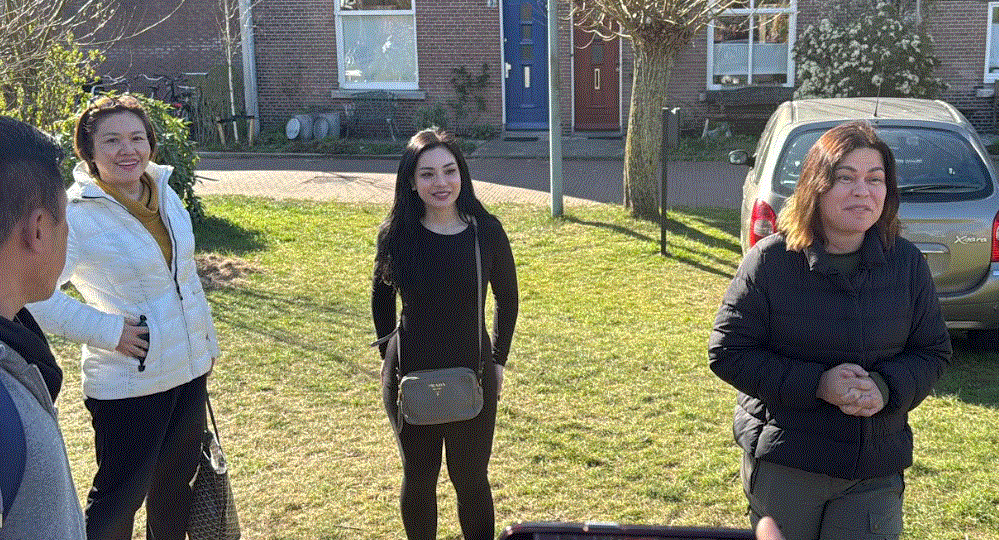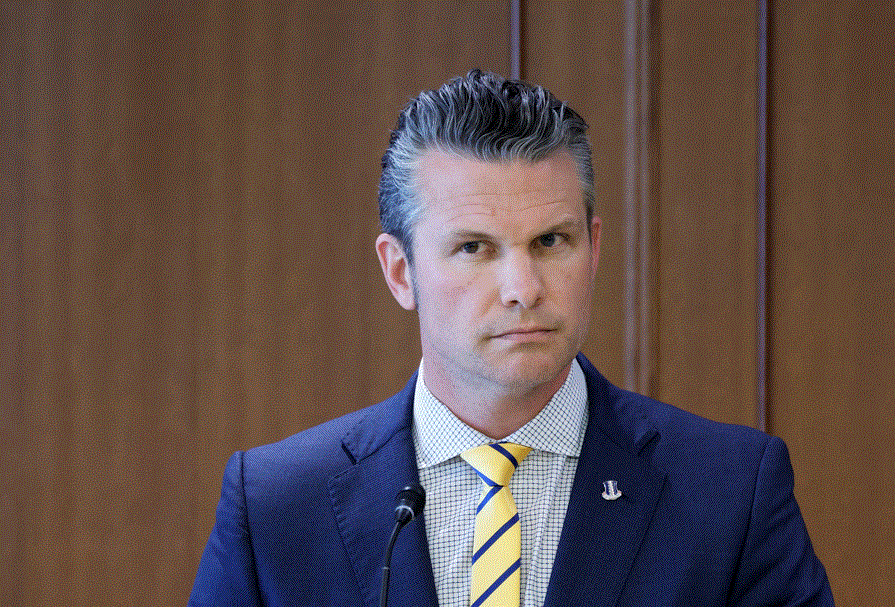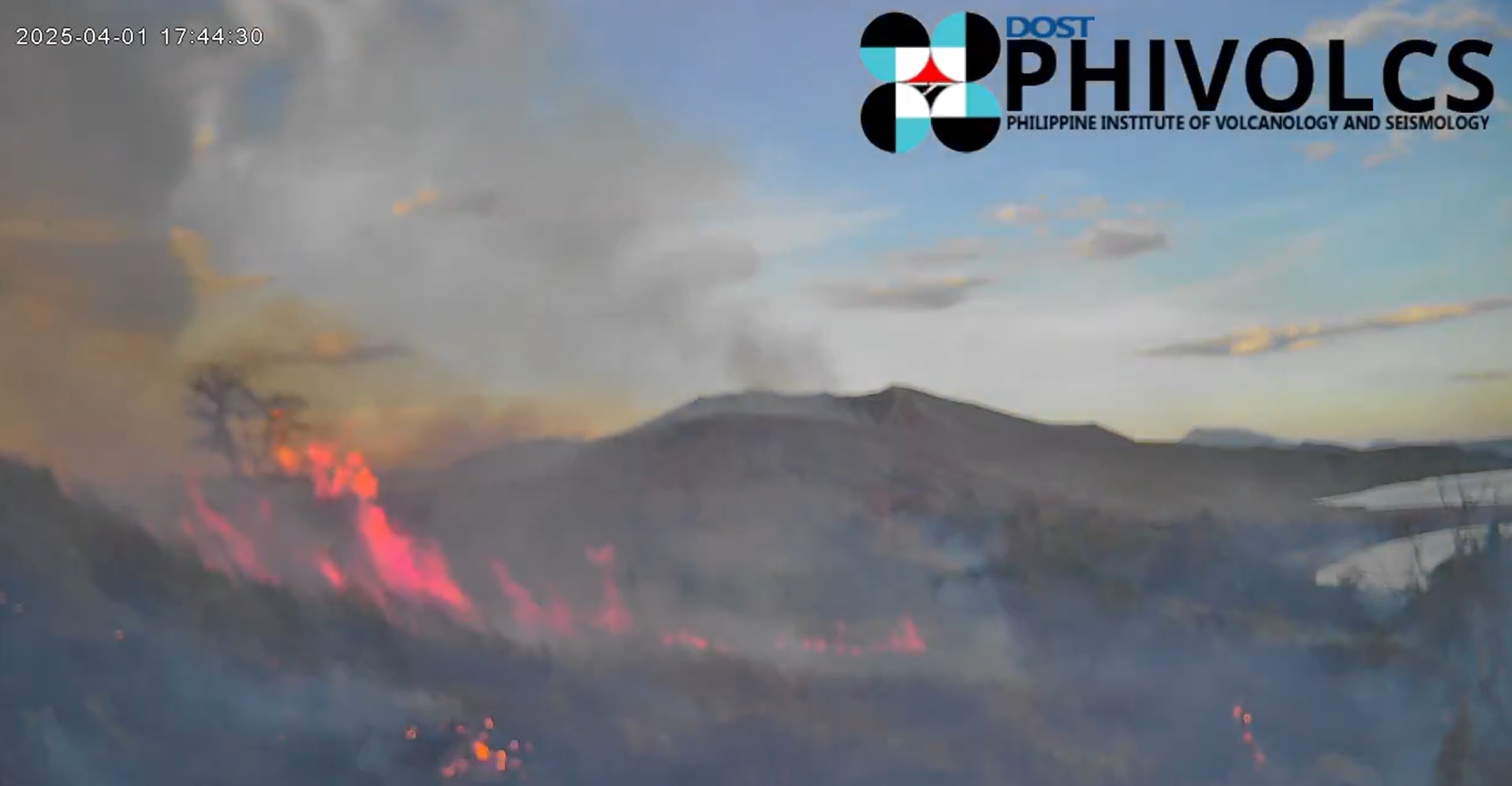DOH urges more access to services, sex ed to lower HIV among youth
Young adults and teens aged 15 to 24 require greater access to sex education and services to lower the alarming increase in HIV infections among this age group as it remains the most vulnerable, the Department of Health (DOH) said in a briefing on Tuesday.
“We believe stigma plays a role in the low, shall we say, acceptance to testing and getting treated. Because I think there’s still a lot of fear and also denial among certain population groups that they will not be infected,” Health Secretary Dr. Paulyn Jean Rosell-Ubial said.
The HIV/AIDs and ART Registry of the Philippines' report for the period of May to July 2017 showed that 325 (30 percent) of new cases were among youth aged 15-24 years, 95 percent of them male. All 325 were infected through sexual contact (36 male-female sex, 192 male-male sex, 97 sex with both males and females).

DOH Public Health Surveillance chief Dr. Genesis Samonte noted that the phenomenon is happening worldwide, in part due to the greater access to partners.
“It's not happening only in the Philippines. It is happening globally because risky behaviors happen at that age group,” Samonte said. “We don't have concrete percentage, however. It is a multifactorial thing.”
Locally, another possible reason for the increase is the need for parental consent for youths to have themselves tested.
While an administrative order allowing youths to get tested even without parental consent is in the works, they can already obtain proxy consent from Department of Social Welfare and Development social workers, teachers, or even of-age peers.

Need a wellness break? Sign up for The Boost!
Stay up-to-date with the latest health and wellness reads.
Please enter a valid email address
Your email is safe with us
“This will be through community-based screening and when it comes to testing, all the health workers are advised on providing for proxy consent, like DSWD or even their teachers can provide proxy consent, or even the peer groups,” Ubial said.
“If parents are not comfortable with talking to their teenage children, then we ask them to also come to the health facility and the DOH will help them counsel their children, and also it is also being taught in the schools,” she later added.
Youths can have themselves checked at “sundown” social health clinics, usually open from 3 to 11 p.m., and also have access to check-ups, psychological and social services such as counseling, HIV counseling, prophylactics, and recommendations to access treatment at hospitals and other health facilities.
97% of young persons w/ HIV may die as they do not take ART; pregnant women w/ HIV are also not on ART. pic.twitter.com/TTvO8Ducr1
— Rie Takumi (@rie_takumi) August 1, 2017
Peer-to-peer counseling is also being tapped more and more by the DOH as it allows people living with HIV (PLHIV) to open up more and gives them immediate access to information and resources they may feel hesitant to access on their own.
“Mas maganda yung approach na from the testing center, na-diagnose ng HIV, ang impact po kasi mas magandang peer-to-peer approach na kapwa positibo ang approach na nakikita agad, para hindi na po siya nawawala, nalo-loss sa follow-up,” said DOH counselor Owie Franco, who is also president of Pinoy Plus, a group for PLHIV.
The DOH also continues to advocate ABC (abstinence from sex; being faithful to one partner; and condom usage), delaying the sexual debut of teens, and other factors through their Adolescent and Youth Health Program (AYHP), which also aims to educate their guardians and educators.
Correct knowledge, abstinence & delay of sexual debut, correct & consistent condom use, & treatment as prevention must be promoted. pic.twitter.com/Aj69ytK1Gy
— Rie Takumi (@rie_takumi) August 1, 2017
“It's focusing on the behavior of young people and how to stay healthy,” Ubial said.
“At the same time, we're also educating not just the young people but all the other support groups around them: the teachers, the parents, their peers, and other healthcare providers. It's informing and educating the whole of society and the whole of our health sectors, as well as other sectors of society.” — BM, GMA News

Need a wellness break? Sign up for The Boost!
Stay up-to-date with the latest health and wellness reads.
Please enter a valid email address
Your email is safe with us









